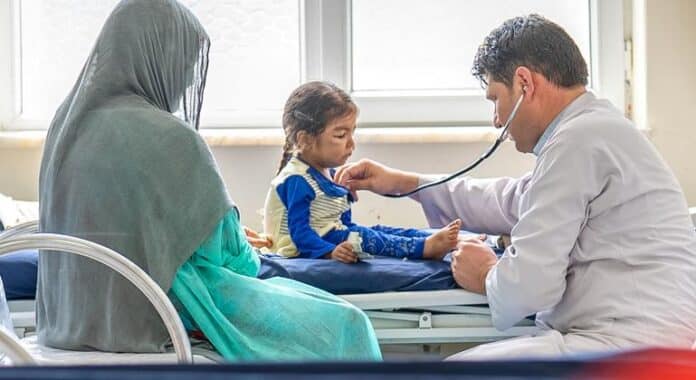This Monday, on World Tuberculosis Day, the World Health Organization (WHO) issued a strong call to the international community to increase investments in care and support services against this disease. Since 2000, joint efforts have saved approximately 79 million lives thanks to advances in the fight against tuberculosis. Nevertheless, the recent cuts in global health funding raise serious concerns about the possible reversal of these achievements.
Under the slogan 'Yes! We Can End Tuberculosis: Commit, Invest, Deliver', the 2025 campaign seeks to inspire action and hope. The Director-General of the WHO, Tedros Adhanom Ghebreyesus, warned that the significant advances of the last two decades are at risk. The decrease in funding could limit access to crucial services for the prevention, detection and treatment of tuberculosis. Furthermore, Ghebreyesus urged world leaders to fulfill the commitments undertaken during the United Nations General Assembly to intensify efforts toward eradicating the disease.
Tuberculosis remains one of the world's most deadly infectious diseases, claiming more than a million lives annually. A recent report from the European Centre for Disease Prevention and Control (ECDC) in conjunction with the WHO highlights a 10% increase in pediatric tuberculosis cases in Europe and Central Asia compared with the previous year. Children under 15 years old account for 4.3% of these cases, which underscores the urgent need to implement effective public health measures to mitigate this increase.
Although some progress has been made, tuberculosis diagnoses and treatments have also shown an upswing in 2023, after a considerable decrease in 2020 due to the COVID-19 pandemic. In regions such as Europe and Central Asia, more than 172,000 cases have been reported, with an increase particularly in the European Union and the European Economic Area. Prior to the recent cuts in international aid, there was already a significant deficit in the global response to tuberculosis, a situation that could worsen programs in non-EU countries.
Another pressing challenge is the coinfection of tuberculosis with HIV. In 2023, more than 15% of tuberculosis patients were also coinfected with HIV, many of whom were not receiving antiretroviral therapy. Experts have urged governments to remedy the shortcomings in tuberculosis and HIV services, and to ensure comprehensive care that reduces transmission and improves outcomes for those affected.
In order to address these challenges, it has been suggested to intensify diagnostic and treatment efforts and to expand access to new, effective treatment regimens. The international community faces the challenge of persisting in the fight against tuberculosis and forging new alliances to pursue a future in which this disease is relegated to the past.



